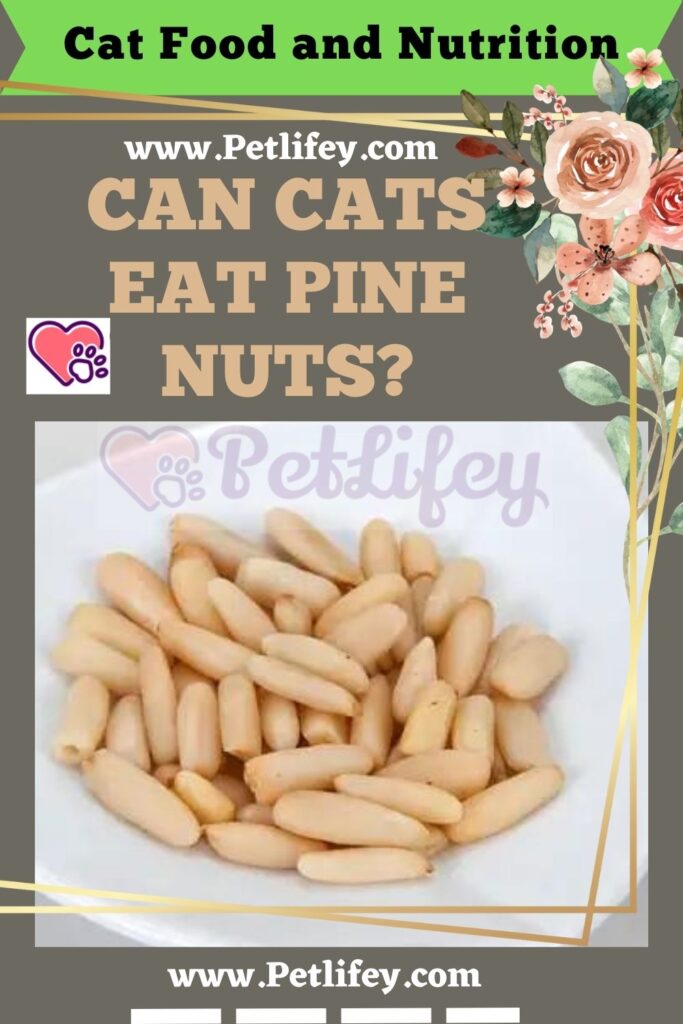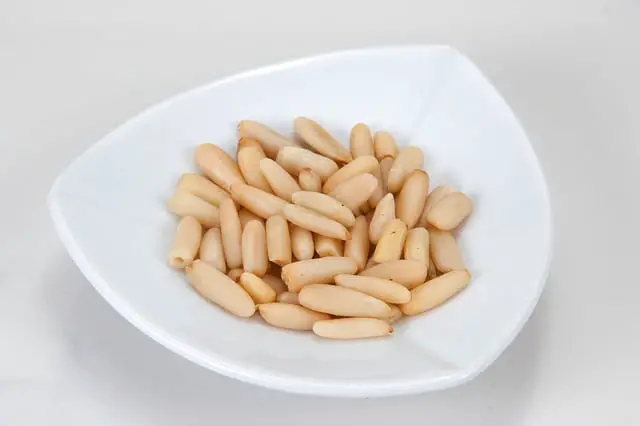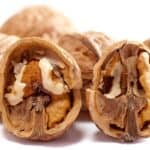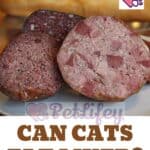
Our cuisine is full of ingredients that can intrigue a furry friend. Let’s see if the cat can eat pine nuts.
Although most felines are picky about food, many of them, when it comes to human food, become curious enough to try to “steal” food from the table.
However, care should be taken with this behavior as many human foods can be harmful to Kitty’s health.
In the following article we will see if the cat can eat pine nuts, or if the latter can be dangerous for our four-legged friend.
Can cats eat pine nuts?

Pine nuts are the edible seeds of pine trees, are extracted from pine cones, and have a sweet but delicate flavor.
They are used in our kitchens as an ingredient for various sweet and savory recipes. In fact, they are mainly used for pesto, often also to enrich salads, but also as an ingredient in grandmother’s cake.
However, as often happens, those who share the house with a four-legged friend may wonder if their feline can eat pine nuts or if they can be harmful to its health.
Pine nuts are not poisonous or toxic for cats, however it is advisable to pay attention to the quantities of this food, as it can cause gastrointestinal problems in the feline.
Having ascertained that pine nuts are not toxic to cats, can the latter benefit from this food? Ultimately yes, as pine nuts contain proteins, Omega-3 fats and fiber, which can be useful for the digestive functioning of the cat.
They also contain a substance called tryptophan, which can be useful for the feline to rest better and be in a good mood during the hours when the cat is awake and also contain copper, vitamin E, magnesium and zinc which can be useful for the feline’s health. .
However, in practice, due to the amount of fat present in this food, the feline should eat a very small amount of pine nuts, which will allow the cat to receive a very small percentage of benefits from this food.
In fact, precisely because of the amount of fat in pine nuts, a greater amount than the permitted amount of this food could cause the following health problems in the feline:
- Vomiting in cats
- Pancreatitis in cats
- Diarrhea in cats
- Hyperlipidemia
For the sake of your furry friend, it is advisable to offer very small quantities of pine nuts to the cat, for the right quantities it is necessary to ask your veterinarian. It is recommended to give this food to the cat, as a reward, and not as a substitute for the cat’s diet.
Remember, that before adding a new food to your four-legged friend’s diet, it is advisable to ask your veterinarian for advice, who knows the medical history of your feline.






